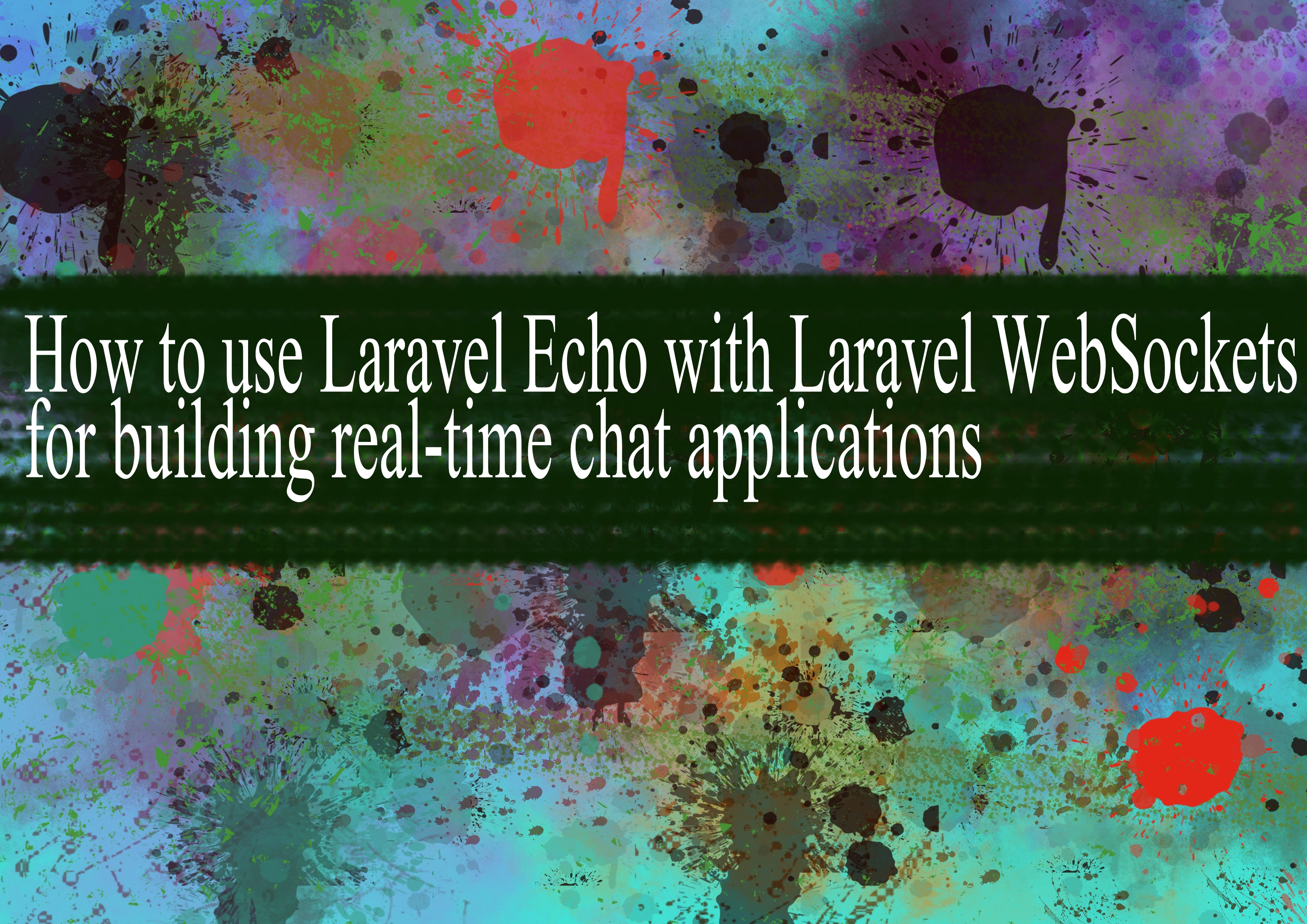How to use Laravel Echo with Laravel WebSockets for building real-time chat applications

Using Laravel Echo with Laravel WebSockets can help you build real-time chat applications efficiently. Laravel Echo is a JavaScript library that makes it easy to subscribe to channels and listen for events broadcast by Laravel. Laravel WebSockets, on the other hand, provides a WebSocket server for broadcasting events in real-time.
Here's a step-by-step guide on how to use Laravel Echo with Laravel WebSockets:
1. Install Laravel WebSockets
First, install the Laravel WebSockets package:
bashcomposer require beyondcode/laravel-websockets
2. Publish Configuration
Publish the configuration files to customize your WebSocket setup:
bashphp artisan vendor:publish --provider="BeyondCode\LaravelWebSockets\WebSocketsServiceProvider" --tag="migrations"
php artisan vendor:publish --provider="BeyondCode\LaravelWebSockets\WebSocketsServiceProvider" --tag="config"
Run the migrations:
bashphp artisan migrate
3. Configure Broadcasting
Configure your Laravel application to use the WebSocket driver for broadcasting. Update your .env file:
envBROADCAST_DRIVER=pusher
4. Install Laravel Echo and Pusher
Install Laravel Echo and the Pusher JavaScript library:
bashnpm install --save laravel-echo pusher-js
5. Configure Laravel Echo
Configure Laravel Echo by updating your resources/js/bootstrap.js file:
javascriptimport Echo from 'laravel-echo';
window.Pusher = require('pusher-js');
window.Echo = new Echo({
broadcaster: 'pusher',
key: process.env.MIX_PUSHER_APP_KEY,
cluster: process.env.MIX_PUSHER_APP_CLUSTER,
encrypted: true,
});
6. Create WebSocket Event
Create an event that will be broadcasted to the WebSocket channel. For example, create a ChatMessageSent event:
bashphp artisan make:event ChatMessageSent
7. Broadcast Event
In your controller or wherever you handle the chat message logic, broadcast the event:
phpbroadcast(new ChatMessageSent($message));
8. Listen for Events
In your frontend JavaScript, use Laravel Echo to listen for events and update the UI accordingly:
javascriptEcho.channel('chat')
.listen('ChatMessageSent', (event) => {
console.log('Message sent:', event.message);
// Update the UI with the new message
});
-
Popular Post
- How to optimize for Google's About This Result feature for local businesses
- How to implement multi-language support in an Express.js application
- How to handle and optimize for changes in mobile search behavior
- How to handle CORS in a Node.js application
- How to use Vue.js with a UI framework (e.g., Vuetify, Element UI)
- How to configure Laravel Telescope for monitoring and profiling API requests
- How to create a command-line tool using the Commander.js library in Node.js
- How to implement code splitting in a React.js application
- How to use the AWS SDK for Node.js to interact with various AWS services
- How to use the Node.js Stream API for efficient data processing
- How to implement a cookie parser middleware in Node.js
- How to implement WebSockets for real-time communication in React
-
Latest Post
- How to implement a dynamic form with dynamic field styling based on user input in Next.js
- How to create a custom hook for handling user interactions with the browser's device motion in Next.js
- How to create a custom hook for handling user interactions with the browser's battery status in Next.js
- How to implement a dynamic form with dynamic field visibility based on user input in Next.js
- How to implement a dynamic form with real-time collaboration features in Next.js
- How to create a custom hook for handling user interactions with the browser's media devices in Next.js
- How to use the useSWRInfinite hook for paginating data with a custom loading indicator in Next.js
- How to create a custom hook for handling user interactions with the browser's network status in Next.js
- How to create a custom hook for handling user interactions with the browser's location in Next.js
- How to implement a dynamic form with multi-language support in Next.js
- How to create a custom hook for handling user interactions with the browser's ambient light sensor in Next.js
- How to use the useHover hook for creating interactive image zoom effects in Next.js